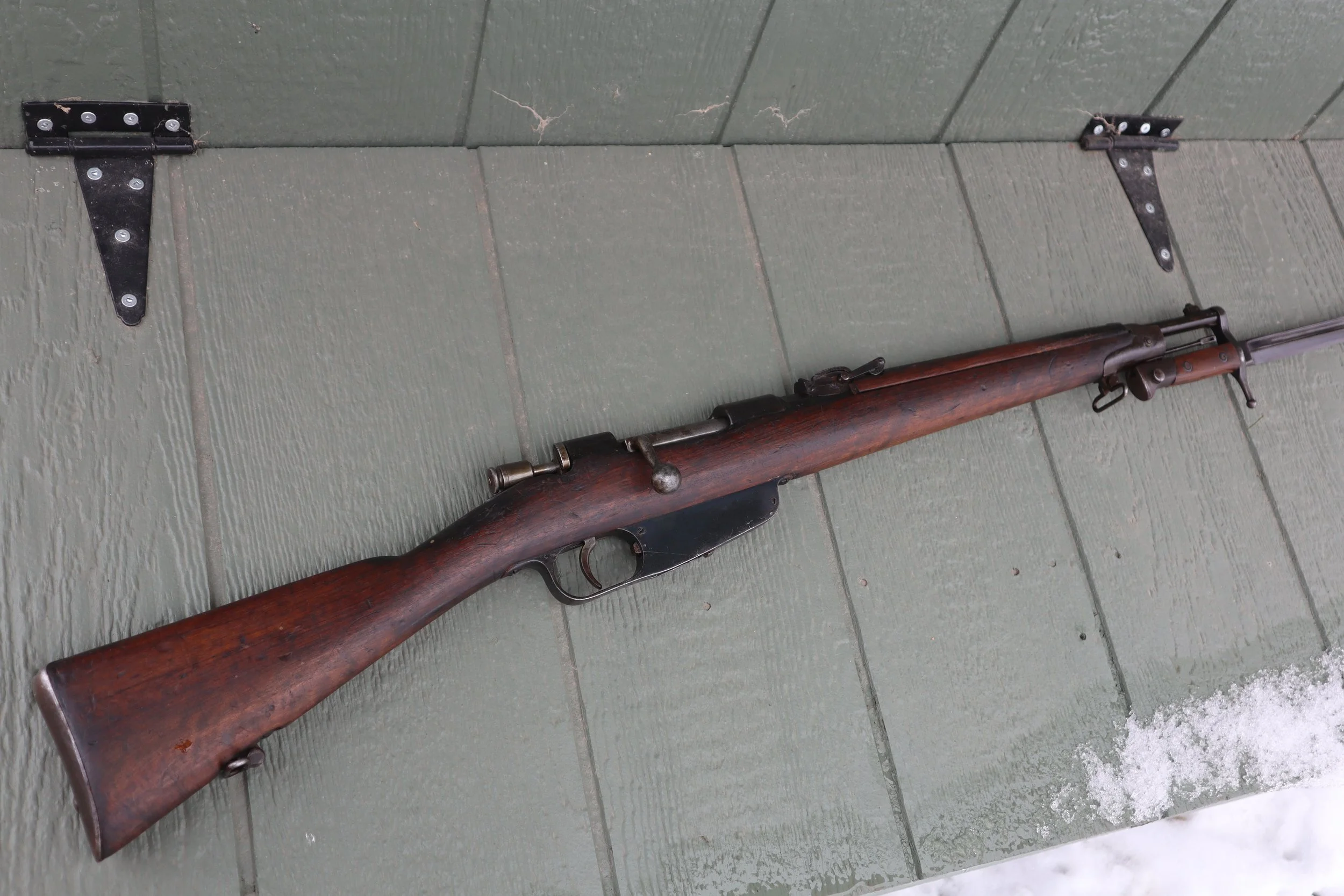
January, 2026
Carcano M91TS
Kingdom of Italy
First World War
Made by Brescia in 1918
6.5x52mm
Categories
Mauser M1903
The most modern rifle in Ottoman inventory during the Great War was an example of the excellent Mauser 98, with some special features. These rifles would serve as a pattern during the interwar Turkish upgrade program, in addition to receiving minor modifications themselves.
Mauser Model 1889/36
Despite adopting a new Mauser 98 pattern rifle, as the Second World War loomed Belgium also undertook a program to upgrade existing stocks of the older Model 1889 rifles to the same pattern.
Mannlicher M.1895
The straight-pull Mannlicher M.95 was the standard issue service rifle of the Austro-Hungarian Empire during the Great War, with millions produced and serving on the Eastern Front and in northern Italy, as well as other Fronts. It would continue in service to the the Empire’s successor states through the Second World War.
Fucile M91 Carcano
The Kingdom of Italy would wisely chose a rifle within their industrial means with the M1891 Carcano, a rifle that would, despite it’s shortcomings, serve on through both the First and Second World Wars.
Type 99 Arisaka
The Japanese Type 99 rifle was intended to replace the Type 38 as the standard issue weapon to the Imperial Japanese Military during World War Two, but was never able to supplant its older brother.
Included at the end of each posting is a reference to the rarity and average price observed by the author. This is, or course, subjective, and results may vary depending on a variety of factors, including condition, certain markings, etc., while rarity may vary depending on time and location.
Rarity is marked on a scale as follows:
Production (currently produced)
Surplus (Currently available on the surplus market)
Common
Uncommon
Rare
Very Rare






